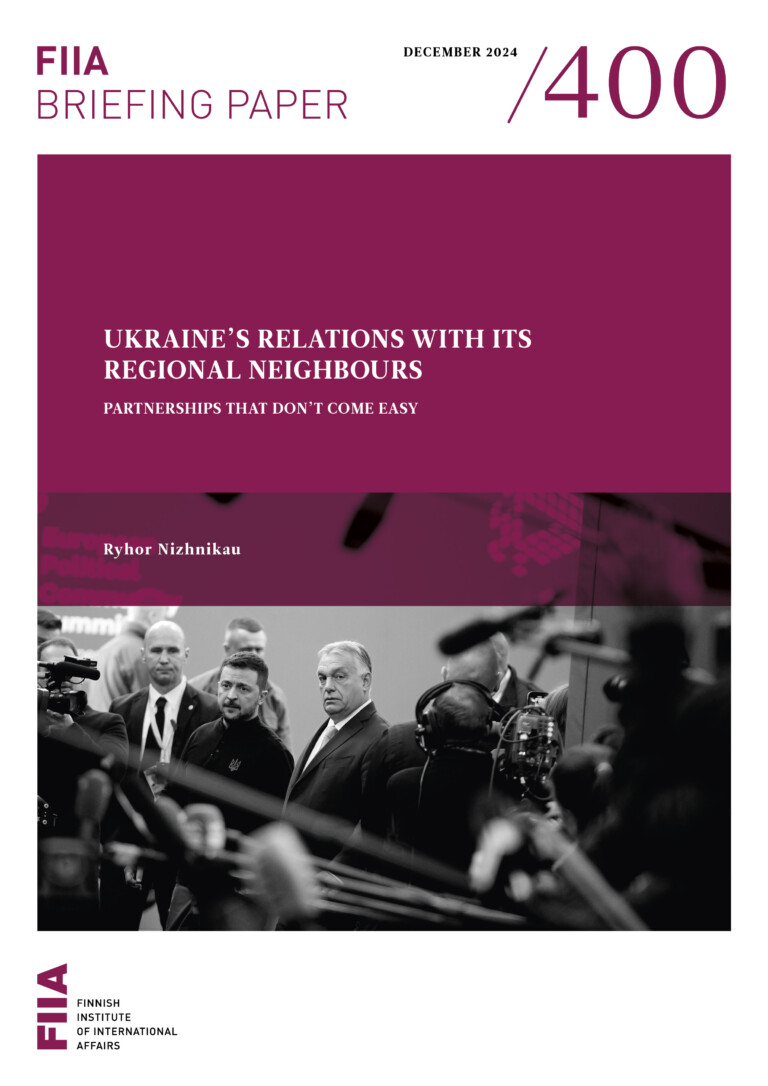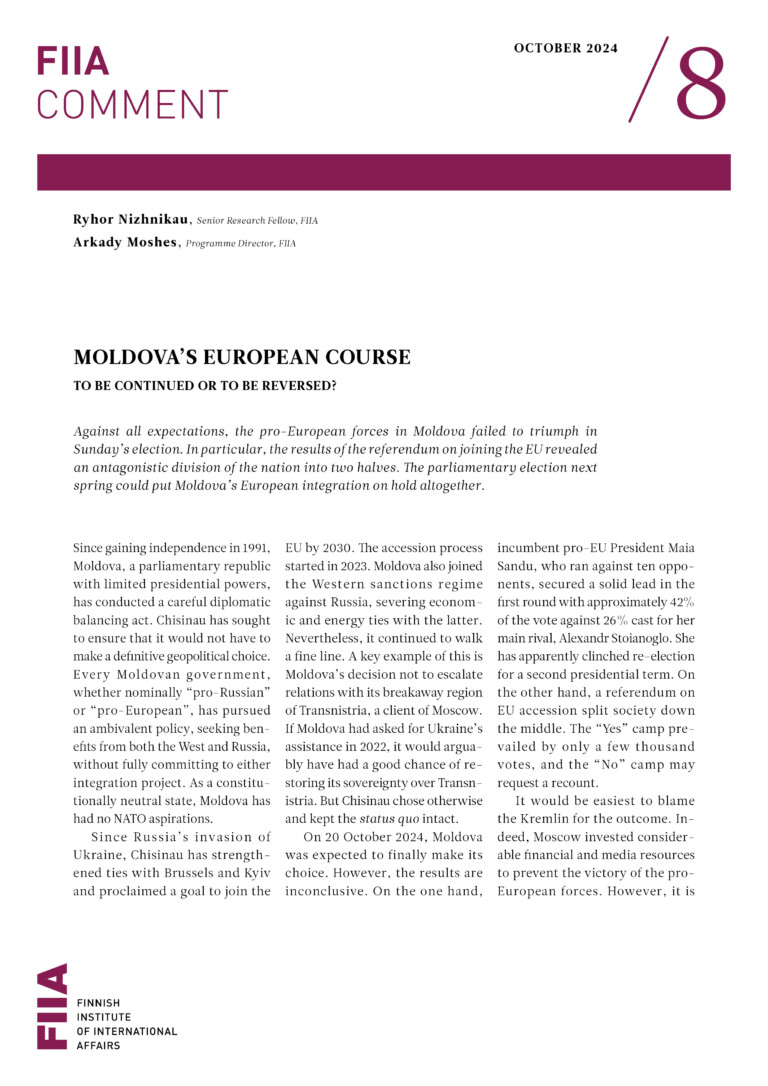Alexander Stubb, Finland’s foreign minister, has recently called for a ‘dignified’ EU human rights policy towards defiant states such as Russia. While the EU needs new ideas to increase the efficiency of its policy, vague references to ‘mutual respect’ and ‘listening’ are still a far cry from offering a credible solution to the problem.
In a comment published in the European Voice in late September 2010, foreign minister Stubb outlined his proposal for a more dignified EU human rights policy towards ‘third countries’, namely states that are not members of the EU. The problem is that the EU’s external human rights policy is failing: it is inefficient, inconsistent and increasingly unpopular outside the EU. Stubb proposes a threefold strategy to improve the situation. The EU should first live up to its own values and standards and only then criticise others; second, the EU should be more united in its foreign policy, and, third, the EU should genuinely try to understand and listen to the views of others.
Stubb’s proposal is a welcome comment highlighting the need to revise the EU’s failing human rights policy. However, some of his points are more controversial than he seems to realise.
The EU states are far from perfect when it comes to the implementation of European and international human rights standards. However, it is not the perfect implementation but rather the honest attempt and true commitment to the norms that matter the most. The EU, the EU states and national and transnational civil society actors are closely monitoring the implementation of human rights norms within the EU, and if and when violations occur, institutionalised procedures for remedy are evoked. Outside actors are also welcome to draw attention to human rights issues within the EU.
A perfect human rights track record should not be a precondition for defending human rights elsewhere. No matter how hard one tries, occasional human rights violations of a milder degree will in all likelihood remain. However, this inevitable imperfection should be turned into a positive message: the struggle for human rights is a common, ongoing struggle for all states around the globe.
The second point about the lack of unity and consistency of the EU’s external human rights policy is widely acknowledged and shared by most policy-makers and analysts. The complaint is related to the wider EU foreign policy framework, not exclusively to human rights issues. As Stubb himself acknowledges, the new EU foreign policy framework is still in the making and one has to wait a few years to see what will come out of it.
The third point about ‘respect’ and ‘listening’ is the most controversial point of the three. To put it bluntly, why should the EU show respect for the murder of journalists, the beating of conscripts and the rigging of elections? And how long would EU citizens show respect for an EU policy like that? Although the reality is not always as black and white as this, the above juxtapositioning demonstrates the moral dilemmas connected with any human rights policy.
Nevertheless, the main thrust of Stubb’s criticism towards the EU’s human rights policy is justified. Over the years, the EU has made many drastic mistakes in its promotion of human rights and assistance to civil society in Russia. Due to complicated funding schemes and bureaucratic procedures, aid has been channelled to civil society organisations that communicate easily with the EU funders, but often have weak links to the Russian society at large. No wonder many Russians believe that the organisations’ agendas are set by foreign actors and hostile to Russian interests.
Another mistake by the EU was the presumption that all post-communist states are in transition from human rights violating authoritarian states towards human rights respecting democratic states with similar problems and challenges. Human rights violations stem from different sources and exist for different reasons depending on the country. The EU human rights policy should be more individualised and flexible in order to address the most pressing human rights concerns in that particular country.
The EU needs to think hard about how to convey a more positive and more engaging message to defiant states like Russia. The EU should attempt to increase the feeling of ownership of the ‘target state‘, without jeopardising its own core values and principles.
Pointing out shortcomings is always much easier than coming up with concrete and specific proposals on how to improve the policy. An idea worth exploring would be to draft a 3+3 priority agenda on human rights with the Russian political leadership. The idea is that the EU would set three human rights priority issues for cooperation and Russian representatives would set three of their own. All issues on the agenda should naturally be acceptable to both parties. After setting the human rights priority issues, the parties should draft a detailed action plan and start active cooperation on these issues. The priorities and the action plan would be public (unlike the current inefficient EU-Russia human rights consultation), so that civil society actors could monitor the progress. Each of these priority issue agendas would run for, say, three years, after which the agenda would be reviewed and relevant issues reset if necessary.
The proposal is a bold one, but its advantages seem clear: the EU and Russia would actually work together to resolve issues and not just pay lip service to how things are and how they should be; the process would be open and transparent to the wider public; the process would be ‘co-owned’ and thus the pupil-teacher setting would be effectively eliminated. This would be an opportunity for Russia to prove that its criticism of the ‘double standards’ of international human rights promotion is sincere, and that it is ready for constructive cooperation on human rights within a fairer framework.






